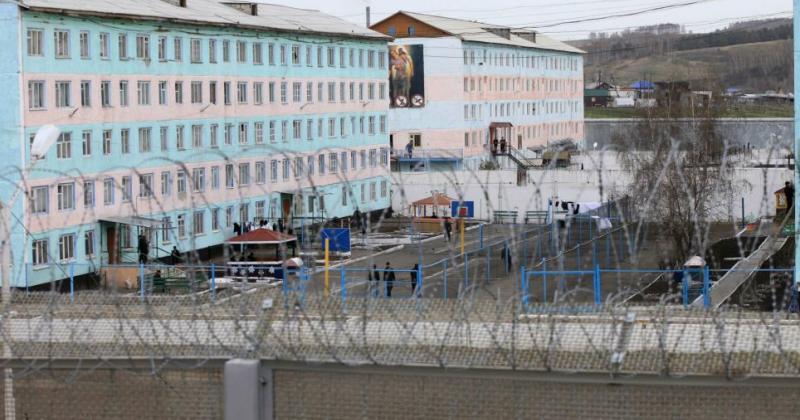Monsignor Ilario Antoniazzi: foreign fighters? There is a risk of indoctrination in prisons; the origin of the problems is not in Tunisia, but in the migrant’s country of origin
*****
Monsignor Ilario Antoniazzi, Archbishop of Tunis, what are your thoughts after a Tunisian navy ship rammed a boat carrying seventy migrants, the night between 7 and 8 October, causing a shipwreck with dozens of deaths?
It is always a tragedy when migrants die. They are people who flee from poverty, wars... to seek a better life. They leave with the illusion of finding an earthly paradise in Europe. The Tunisian navy accident has shocked many, because the route to Italy had almost disappeared. It was a return to the sad reality of the past.
What role does Tunisia play now? How is it organizing itself after the closure of the Libyan border?
We thought that the closure of the border with Libya would not have that much of an impact in Tunisia. As it is the safest country in the Maghreb. But the desert and the sea cannot be closed hermetically; moreover, for the desperate people who find themselves in illegal refugee camps in Libya, the only salvation is to “risk their lives” to arrive in Tunisia, and put an end to the Libyan nightmare. Tunisia is therefore facing a new challenge today, because a new route is opening up to Italy, and we are under the impression that we are only at the beginning. We are returning to the time of Lampedusa and the first shipwrecks: once they used to arrive in Tunisia to go to Libya, now they flee from Libya and leave from here, because they know that with the current agreements it is difficult to go to Italy “.
Where do migrants leave from exactly? And under what conditions do they travel?
“They leave especially from the coasts between Sfax and Sousse. The area is full of small fishing ports. Migrants can find somewhere to live and take advantage of the fishermen’s boats that can easily reach the Italian coasts. It just takes a group of people, to collect enough money to pay and risk one’s life towards the Italian “earthly paradise”. That’s what happened to the boat spurred near Sousse.”
How could these departures be stopped in practice?
“Tunisia is already doing everything possible. But I think the main issue is another .”
And that would be?
“Let me make example to explain the situation. If the house is flooded with water, it’s useless to wonder how to get rid of the water: the pipes have burst elsewhere. Tunisia bears the consequences of “pipes that have broken” elsewhere. The cause and therefore the solution are not here, but in the respective countries of origin of those who are desperately emigrating. If the problems at source are not solved, there will always be migrants.”
Is there a risk of terrorist infiltration in these dramatic journeys?
“The risk exists. However, it should be noted that the criminals involved in the attacks in Europe often had European nationalities. There are many possibilities for terrorist infiltration, especially from Libya, our first neighbor, or from places from which various criminals flee to escape justice, they take refuge in Tunisia and then seek “freedom” in Italy and Europe.”
The arrest of the Tunisian Anis Hannadi, brother of the Marseille bomber, and bearing in mind that Tunisia is a country with a very high number of foreign fighters in Syria, what are your views on this matter? In particular, what do you think about the relationship between prison and radicalization?
“It cannot be denied that Tunisia, despite being the country that has given the largest number of fighters for the “altar of martyrdom”, is still the most stable and safest country in the Maghreb, - and let me say this - the safest of several European countries. The Tunisian intelligence services is doing a good job. Then, as everywhere else, prison is not the best school for teaching values.
What do you mean?
Isis knows that the most vulnerable people are the needy, the unemployed, people with family problems, and so they promise money for them and their families. The Islamic State knows well that the spiritual emptiness experienced by our young people must be filled, and they do so very well by offering false religious, spiritual values and a promise of paradise resulting from martyrdom, a struggle to defend religion from unbelievers. So, prison and its situations of unease is obviously a “fertile ground”. At the same time, for the same reasons, I was never surprised that young Europeans who have every blessing of God from a material point of view, adopt Isis’s ideas and fight at its side.”
About foreign fighters, is there a true risk of indoctrination in prisons?
Foreign fighters do not leave prisons as easily as others, but the question is: once you are out of prison, are you a bettered person or are you more indoctrinated than before? Just look at Europe and the number of people that have been radicalized in prison.
What do you think of the recent “amnesty” by the President of Tunisia, Beji Caid Essebsi, who opened the prison gates to those who had served their sentence for theft or drug trafficking?
The question arises as to whether these people are still here or have left for Italy. It is people who have already served their time. But the question arises as to in what conditions these people have left prison.
